This guide to probate real estate will help agents and investors better serve their clients.
Over 25,000 families go into probate each week – that’s 25,000 families who will be lost to confusion, distress, anxiety, and even exploitation. That’s why probate real estate is not just an opportunity – but also an awesome responsibility. Real estate agents have an opportunity to do something amazing for their communities, their own businesses, and themselves – but they have a responsibility to do it the right way, for the families they can help, and for the benefit of their entire communities.
So, if you’re looking for probate real estate training, you’re in the right place. Let’s begin by understanding what probate is, how probate court works, and details about the probate process and timeline.
![Are you compassionate enough for the probate niche? [QUIZ]](https://no-cache.hubspot.com/cta/default/9493983/de1ba8c2-d843-4f83-8382-93e8a7cb9c3a.png)
A Guide to Probate Real Estate: Table of Contents
- Why people need probate real estate agents
- What is Probate?
- Is probate required if there is a will?
- Intestate Succession: when there is no will
- The Probate Code Act
- What is Probate Court?
- Who is involved in probate (people and terms to know)
- What roles do these parties play in the probate process?
- Are probate attorneys required?
- The Probate Process & Timeline
- Probate Real Estate Agents: helping families who are underrepresented
- About Probate Mastery
Why people need probate real estate agents and investors
Have you ever heard some of the horror stories that come from people who have gone through probate? “Apart from losing my mom, probate was the most painful thing I have ever gone through in my life…”. “My sisters and I had to go through a very difficult process after mom died in deciding what to do with the house…” or “My brother left me the house in Virginia… I live in Maryland and just don’t have the time or energy…”
These are the common stories that are told time and time again when families are finally able to connect with a probate real estate agent. The truth is that probate can be messy, frustrating, and tie up money for years. While a thorough will or living trust can help families avoid the pain of probate, and a good probate attorney is essential in some probate cases, many probate situations can turn around completely with an educated and helpful real estate agent.
For families who are liquidating assets, or selling the estate for any reason, probate real estate agents give families in probate the upper hand in their situation. Not only can agents give sellers the peace of mind they need that the house will be taken care of, but they are also able to file the proper paperwork on time and go through the probate red tape that generalized agents aren’t prepared for. Probate agents are able to make a real difference in people’s lives by adapting to each clients’ unique and sensitive situation.
Many people are not interested in inheriting houses. If they already have their own house or don’t want to live in the inherited house, it becomes a burden rather than a blessing. Even if the mortgage is paid off, they have to pay taxes and insurance. In addition, many people sell the house so they can divide the income between beneficiaries.
One agent who is part of the Probate Mastery Alumni community reported: “I’ve mowed the grass at the estate, hired crews to pack boxes, helped them to divide and sell property, and even aided with sibling in-fighting. It’s not just about selling their mom’s house, it’s coming to their aid when they needed help.”
Probate real estate agents can be a gift to their communities. Let’s find out what probate is all about, and then we’ll talk about some of the necessary skills for a good probate agent.
What is Probate?
When someone dies, the court has to help determine how to distribute their assets. In a nutshell, this is the definition of probate. The legal process that someone’s estate goes through after they die. There are a few cases when probate is not required, but generally, probate almost always is. Learn more about when probate is not required in Probate Mastery On Demand.
Probate (verb): The formal legal process that gives recognition to a will and appoints someone to administer the estate, settle liabilities and distribute the assets to the intended beneficiaries.
In a nutshell, probate:
- Validates a will
- Appoints an administrator
- Pays debts and distributes assets
- Is almost always required
Is probate required if there is a will?
Many people believe that probate is not required if there isn’t a will, but that simply is not true. Probate is still required in situations where there is a last will and testament. In fact, the will has to be authenticated in probate court to proceed with the distribution of assets.
Note: There are also situations where probate is required if the deceased had a living trust.
Intestate Succession: when there is no will
In cases where there is no will, the state will basically make one for you – called intestate succession. Those state succession laws guide the process of deciding how an estate is settled when there is no estate plan.
When someone dies without a will, they have “died intestate,” and if they have assets left over after the debts have been paid, the remaining property will pass by “intestacy” to the heirs. Intestate Succession is the condition of an estate when there is no will and there is more value in their property than their outstanding debts. You can find a list of Intestate Succession laws by state here.
The Probate Code Act
The Probate Code Act was drafted by a bunch of lawyers from The Uniform Law Commission (ULC) and defines the general provisions and definitions for the jurisdiction of probate court. This serves as the starting point for all state laws, like, who gets the inherit the estate if there is no will? And, does the surviving spouse have to share the inheritance? You can read The Probate Code Act yourself here.

What is Probate Court?
Probate court is a division of the court system that specifically deals with the assets and debts of a person who has died. The probate court judge is responsible that the creditors of the deceased are paid, and that the rest of the estate gets to the right beneficiaries, and the probate clerk helps the judge by scheduling court hearings and filing the paperwork.
Not all states have a separate probate court. In Virginia, for example, the will is probated in the Circuit Court of the city or county where the decedent resided, or where they owned real estate. In this case, the probate clerk works at the Circuit Court.
Who is involved in probate (people and terms to know)
First, let’s break down a few of the probate terms, and then we’ll talk about the responsibilities of the parties involved in the probate process. This is not an exhaustive list, just enough to help you understand who is involved and what the process is:
Deceased / Decedent: The person who has died. If this person has made a will, they are the “Testator” (or testatrix when female).
Heir: The person legally entitled to the deceased’s property if there is no will. This person is usually a surviving spouse or decedent (child or grandchild). However, if there is a will the heirs may not be listed, and the estate may go to a beneficiary who is not an heir.
Beneficiary: The person(s) listed in a will, trust or insurance policy who receives the estate.
Personal Representative: When a person dies, their property is collected and distributed by the “personal representative” and their title is decided by the method by which they are appointed. An Executor is assigned by a will, while an Administrator is appointed by the court.
Executor: The personal representative or entity appointed by the will of the deceased to carry out the terms of his or her will. (A woman appointed is called Executrix).
Administrator: The personal representative appointed by the court, responsible to deal with the estate if there is no executor. This can happen if there is no will, or there was no executor listed in the will. The administrator has to apply to the court for permission, and it is usually a relative. In many states the administrator gets paid for filling this role.
Probate Clerk: The administrator of probate court who keeps the records and court calendar. In other words, a person you should get to know!
Probate Attorney: Usually hired by the personal representative, this is a specialty lawyer who helps identify and distribute the assets and guides them through the entire probate process.
What roles do these parties play in the probate process?
At the beginning of the process, the heirs and probate clerk will play a small role in probate. In most cases, the probate attorney plays one of the biggest roles. Although they will be the quarterback and handle the legal aspects, they don’t handle everything.
The personal representative (whether an executor or administrator) plays the biggest role as they are legally obligated to meet the wishes of the deceased, including:
- Gather documents
- Hire the attorney
- Fill out paperwork
- Manage the assets and debts
- Open a bank account
- Manage the properties
- File tax returns
The personal representative has a legal, fiduciary responsibility to the assets and therefore takes personal responsibility for the assets, and can even be sued.
Are probate attorneys required?
No, probate attorneys are not required by law. However, because many people get in over their heads they often end up hiring an attorney even if they started off on their own.
The Probate Process & Timeline
Although it can feel intimidating to prospect people who are going through a difficult time and likely grieving, the community of certified probate experts here at Probate Mastery can tell you how rewarding it is to be in this niche. Not only are you working in an untapped market with little to no competition, but in our collective experience, the sellers are filled with gratitude and relieved to be working with someone who truly understands probate and can support them in the ways that matter most during such a difficult time. As agent Erik Stark put it after taking Probate Mastery, “… I have a completely new mindset and understanding of the process and feel anyone serving the probate industry should be educated with as well. I truly hope more agents/investors (even in my own market) take this course to eliminate predatory practices.”
In the following section, we will cover a few things that happen in probate. For a detailed breakdown of the probate process, timeline, and understanding your local laws, consider taking the Probate Mastery course.
What happens in Probate?
The process itself is known to take time, sometimes even years. Because laws vary from state to state, the process and timeline will vary. Especially in cases where there is no will. Here is a simple breakdown of the probate process:
Authenticating the will
The first step is to file the decedent’s will with the probate court. Most states require that anyone who has possession of this document must file it as soon as possible. At the same time, they can file an application or petition to open probate of the decedent’s estate.
The court will then hold a hearing to which all beneficiaries and heirs must be invited. Remember, beneficiaries and heirs are two different things. While beneficiaries are named in the will, the heirs are not always named).
Appointing an Personal Representative
The next step is to name the administrator of the estate, the person who will oversee the settling of the decedent’s affairs. Sometimes the decedent has already named an executor in the will, other times a member of the family will apply to be the administrator.
The personal representative is then given “letters testamentary” that gives the authority to act on behalf of the estate. In order to accept these letters, the representative is sometimes required to post bond. This is a type of insurance policy that will be used to reimburse the estate if they make a mistake.
Rounding up the decedent’s assets
With the proper authority in place, the representative begins the task of rounding up all the deceased’s assets. This can be a massive undertaking, and not to be taken lightly.
When it comes to real estate, the representative is in charge of keeping all the bills current while the probate process is going on. They don’t have to occupy the house, but they do need to pay all the taxes, insurance, and mortgage payments if applicable.
Appraising the assets
Now it’s time to figure out what all this stuff is worth. For accounts, finding the date of death value is pretty straightforward by going through the account statements. For real estate and other physical assets like vehicles, an appraisal is needed.
In some states, the probate court will appoint the appraiser, in others, the representative can pick one.
Most states then require the representative to submit a list of all assets and their values, along with a note of how those values were obtained.
Notifying and paying the creditors
If the decedent had any debts, it’s time to make sure those get paid back. The executor must make every effort to track down and notify any creditors of the decedent’s passing.
Most states even require a notice to be published in the newspaper to alert any unknown creditors. There is a required waiting period that varies from state to state to allow creditors a chance to respond.
Once all the creditors have been identified and verified, the debts are paid out of the decedent’s assets.
Paying income taxes
The next step is to pay the government. The representative gets the thrilling job of completing and filing the decedent’s income taxes for the year they died. They’ll also need to figure out if any estate taxes apply.
Generally, after a person dies, their estate taxes must be paid within nine months. These taxes are paid out of the estate but may require liquidating some of the assets to do so.
This is another spot where a quick real estate sale will be helpful. They need to have liquid cash on hand to make these payments on time.
Paying out the inheritances
Once all these affairs have been wrapped up, the beneficiaries or heirs finally get to receive their inheritance. The representative will have to get permission from the court and provide a complete accounting of all the decedent’s affairs to release the inheritances. Again, if there is still property at this point, it may need to be liquidated to divide the money between beneficiaries.
Probate Real Estate Agents: helping families who are underrepresented

Because families in probate can often be taken advantage of by the real estate industry itself, or sometimes attorneys or other professionals who don’t hold the same values – we have an awesome opportunity to help families who are being underrepresented. Probate real estate does take a level of compassion that isn’t always needed in normal real estate sales. For example, you may or will need to:
- Be more flexible
- Feel comfortable working with people who are upset
- Be willing to go the extra mile to make the process easier for your client
- Offer genuine compassion (money-driven compassion is off-putting)
- Think up creative solutions, which sometimes won’t benefit you
- Be willing to lend an ear to your clients
For more ideas on creating a compassionate niche environment, read about this Empathy Quiz!
About Probate Mastery – The best guide to probate real estate business out there.
Probate Mastery is the premier probate certification program for Real Estate Agents and Investors in the US. This course is the highest level of probate training available; consisting of 3 comprehensive sessions covering everything you will need to successfully implement an effective probate strategy into your existing business.
You can learn more about the Probate Mastery course curriculum or check out an introductory webinar to learn more.


6 Comments on “A guide to probate real estate for big-hearted real estate agents and investors”
Article and presentation is good – one Question about the courses that I find in my search for in-depth study material is not there! Read a few articles take a 20 Quiz questions and now you are in!!! as a “CPREA” – Certified Probate Real Estate Advisor. — your course seems to have depth to it and what is the real difference between your course Probated Mastery Digital – Get Certified.
Looking in expanding my business IRS tax resolution work with real estate etc. and the Fed. tax returns for deceased individuals etc. Also, I am Texas – Real Estate Broker in which we basically work in our own property management. Looking at combining Probate Real Estate work for attorney’s with Tax Resolution on the state and federal levels (Certified) and to also acquire more properties? Your Comments would be appreciated. Thank you
Hi William!
Probate Mastery covers not just the 101 on probate itself, but takes you through a full training on how to market and speak to probate leads, build a vendor team to handle common tasks personal representatives need assistance with, engineer transactions, and generate referral business from both the people you help and the vendors you work with. The end result of these combined actions is you become the recognized brand for all things probate in the markets you work in.
You’re in a great position being that you’ve got your foot in the door in the real estate and tax industry. This means your USP (unique seller proposition)/value offer go beyond just one job title, and you can directly monetize two common aspects of probate.
The course will teach you not to put yourself in any single box, but rather connect with prospects as someone who understands their situation and can offer real solutions. The vendor team you put in place will help you offer these solutions and appear as a vertically integrated business, helping keep leads in your pipeline until they need direct services from you and giving you an array of options to indirectly monetize leads who do not need to sell a house.
You will get clarity and find direction through this course, and having that confidence in yourself and vision is what will really resonate through your marketing to and conversations with families that are going through probate.
I welcome you to join Estate Professionals Mastermind on Facebook, https://facebook.com/groups/estateprofessionalsmastermind and strike up a conversation ANY time you feel stuck in growing your business.
Welcome to the community!
-Katt
William,
As we both know, anyone can get exposure to a concept, answer questions, and get a certification. It’s not the certification, but the information, assimilation and execution that matter.
Other probate courses give you basic info that could be found via web search or at your local courthouse. Where Probate Mastery shines is in the detail involved beyond the basics – whether it’s the psychology for engaging folks who are grieving and distrustful, creating an aura of value that will excite prospects – both leads and referral partners, how to monetize ANY situation and do so in a win-win manner, etc.
Facts and figures won’t help when it comes to developing solutions that pay off for the client and service provider (you). Real world examples, and ongoing support via included coaching will.
I hope to see you on some of the future coaching calls!
Excellent write-up. I definitely appreciate this site.
Continue the good work!
Your method of describing everything in this article is really helpful, thanks a lot.
Thanks for also talking about how taxes could also play a large role when it comes to processing a probate. I’m interested in looking for a good probate attorney soon because my cousins and I have a bit of a disagreements about what to do with our late grandfather’s assets. Finding a lawyer to help us sort that out would help avoid further arguments.